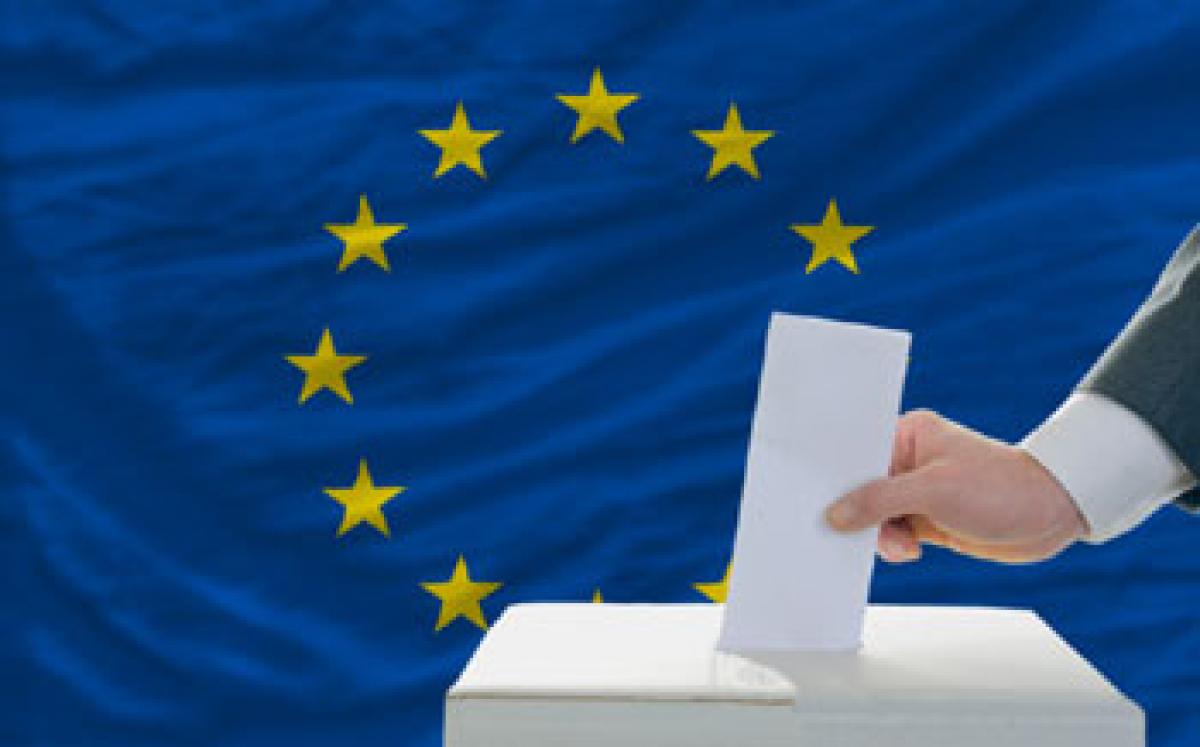Live
- Congress killers of Samvidhan: Modi
- Bejan Daruwalla’s horoscope
- Study warns: Ultra-processed foods may accelerate biological age
- CM pledges more political opportunities to Madigas
- Vizag attracts tourists as much as Kashmir
- Year-Ender 2024 Guide: Home remedies to relieve Period Pain.
- All India crafts mela begins today
- TTD gears up for Vaikunta Ekadasi fete
- Express Yourself
- Rajadhiraaj: Love. Life. Leela
Just In

Panic rather than love may keep Britain in the European Union (EU) when voters cast their ballots in a referendum, probably in June, on whether to stay in the 28-nation bloc under Prime Minister David Cameron\'s \"new settlement.”
Brussels : Panic rather than love may keep Britain in the European Union (EU) when voters cast their ballots in a referendum, probably in June, on whether to stay in the 28-nation bloc under Prime Minister David Cameron's "new settlement.”
While few may be swayed by the lightly amended membership terms, a plunging currency, tumbling share prices and fears for property values could drive enough Britons to opt at the last minute for the status quo rather than a leap into the unknown.
That was how the British political establishment managed by the skin of its teeth to hold the United Kingdom together in 2014, when Scottish voters tempted by the centuries-old dream of regaining independence from England ultimately chose safety.
It is also a plausible scenario for the EU vote, especially since a decision to leave would reopen the Scottish question. Ordinary Brits tempted to give the unloved "Europe" a kicking may plump for stability to avoid economic uncertainty rather than risk financial and political turmoil.
In Scotland, the communications director of the "Better Together" campaign, Rob Shorthouse, got into trouble for joking that his strategy was "Project Fear". The idea that unionist campaigners were setting out to frighten voters stirred outrage in the nationalist camp, but it proved effective.
Eurosceptics accuse Cameron of planning a similar scare campaign now, but events may produce the same impact even without political orchestration… It's an understatement to say Britons are less emotionally attached to the EU than they are to national unity.
Yet the potential economic damage from a "Brexit" could be greater than if Scotland had left, and the former might trigger the latter. Economic forecasters say the British economy would suffer a significant setback if the country decided to leave the EU, with its 500-million-strong single market, common external trade policy and free movement of capital, goods, services and people.
An exit vote would not take effect immediately but there would be several years of uncertainty and acrimony while Britain negotiated a new, more distant relationship with the bloc. The City of London financial centre, which has thrived as an offshore capital for euro trading, would almost certainly lose some ground. How much is a matter of fierce dispute.
Eurosceptics say that EU supporters made the same case in the early 2000s that if Britain did not join the euro, the City would wither. On the contrary, it has flourished. Yet leaving the EU would present a different challenge.
Big foreign banks use London as their European gateway due partly to the EU's "passporting" principle that an institution regulated in one member state can trade all over Europe. Some are now making contingency plans to move certain activities and staff to Dublin or Frankfurt in case of "Brexit", bankers say.
Fewer bankers and less investment would hit property values over time. Uncertainty over the status of some 2.1 million EU workers in Britain could also dampen the housing market. US investment banks Goldman Sachs and Citi have both estimated the pound could lose between 15 and 20 percent of its value against major trading currencies if the "Out" camp wins.
While many British companies have kept quiet about support for EU membership to avoid upsetting shareholders or customers who favour a "Brexit", currency instability, stock market losses and an incipient investment freeze could make them more vocal.
Even strong EU supporters such as Charles Grant, director of the London-based thinktank Centre for European Reform, acknowledge that the "In" campaign will struggle to convince voters of the positive case for staying in the bloc.
Opponents argue that under EU rules, Britain cannot control its national borders to shut out migrant workers; that the UK net contribution to the EU budget would be better spent on the National Health Service; and that foreign judges in the European Court of Justice should not be able to overrule British courts.
By contrast, many of the benefits of EU membership in global trade, international political influence and shared norms and values are hard to quantify and explain simply, Grant said. Hence the temptation for pro-EU campaigners to focus more on what Britain stands to lose in case of a "No" vote - foreign investment, jobs and security. "Project Panic" may not be the official strategy, but it looks likely to play a big role in shaping the British vote.
By Paul Taylor

© 2024 Hyderabad Media House Limited/The Hans India. All rights reserved. Powered by hocalwire.com







